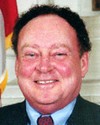Mr. Speaker, if only the hon. member would talk to his provincial colleagues in British Columbia.
This government believes that the issue of water exports is an environmental issue not a trade issue. Eight provincial governments and territorial governments agreed with the federal government in a national water accord.
We fully expect four other provinces to come onside once they have consulted with their own cabinets. I would encourage the Government of British Columbia to get onboard because we are doing the right thing.












